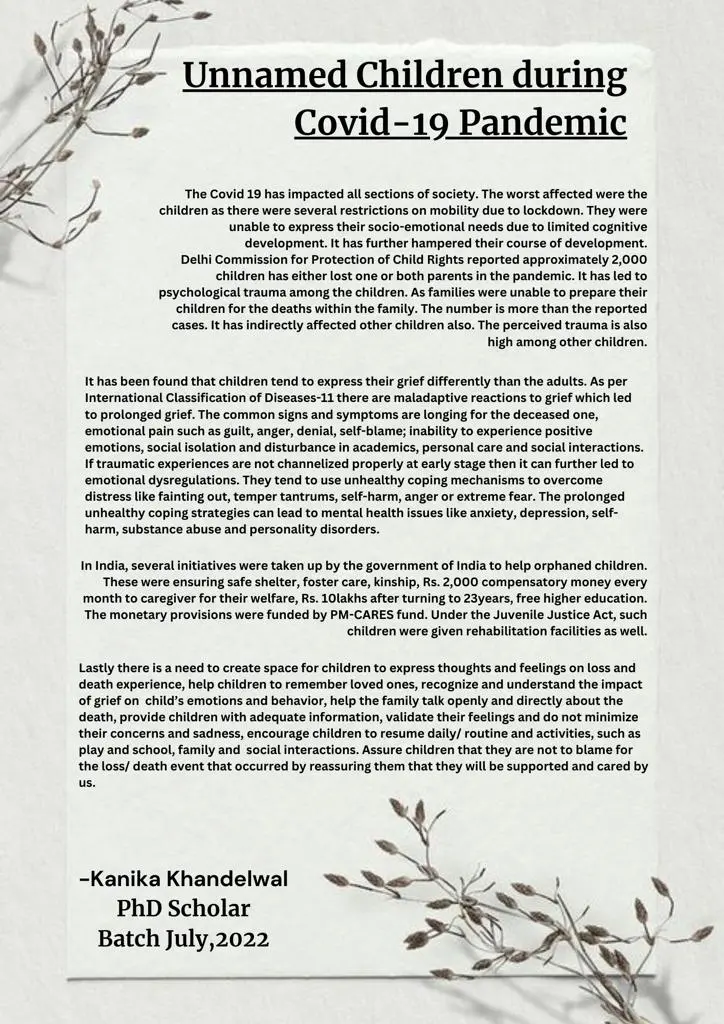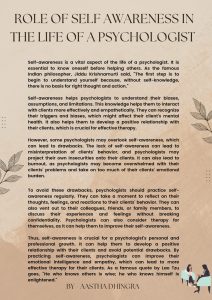The Covid 19 has impacted all sections of society. The worst affected were the children as there were several restrictions on mobility due to lockdown. They were unable to express their socio-emotional needs due to limited cognitive development. It has further hampered their course of development.
Delhi Commission for Protection of Child Rights reported approximately 2,000 children has either lost one or both parents in the pandemic. It has led to psychological trauma among the children. As families were unable to prepare their children for the deaths within the family. The number is more than the reported cases. It has indirectly affected other children also. The perceived trauma is also high among other children.
It has been found that children tend to express their grief differently than the adults. As per International Classification of Diseases-11 there are maladaptive reactions to grief which led to prolonged grief. The common signs and symptoms are longing for the deceased one, emotional pain such as guilt, anger, denial, self-blame; inability to experience positive emotions, social isolation and disturbance in academics, personal care and social interactions. If traumatic experiences are not channelized properly at early stage then it can further led to emotional dysregulations. They tend to use unhealthy coping mechanisms to overcome distress like fainting out, temper tantrums, self-harm, anger or extreme fear. The prolonged unhealthy coping strategies can lead to mental health issues like anxiety, depression, self-harm, substance abuse and personality disorders.
In India, several initiatives were taken up by the government of India to help orphaned children. These were ensuring safe shelter, foster care, kinship, Rs. 2,000 compensatory money every month to caregiver for their welfare, Rs. 10lakhs after turning to 23years, free higher education. The monetary provisions were funded by PM-CARES fund. Under the Juvenile Justice Act, such children were given rehabilitation facilities as well.
Lastly there is a need to create space for children to express thoughts and feelings on loss and death experience, help children to remember loved ones, recognize and understand the impact of grief on child’s emotions and behavior, help the family talk openly and directly about the death, provide children with adequate information, validate their feelings and do not minimize their concerns and sadness, encourage children to resume daily/ routine and activities, such as play and school, family and social interactions. Assure children that they are not to blame for the loss/ death event that occurred by reassuring them that they will be supported and cared by us.
-Kanika Khandelwal
PhD Scholar
Batch July,2022




